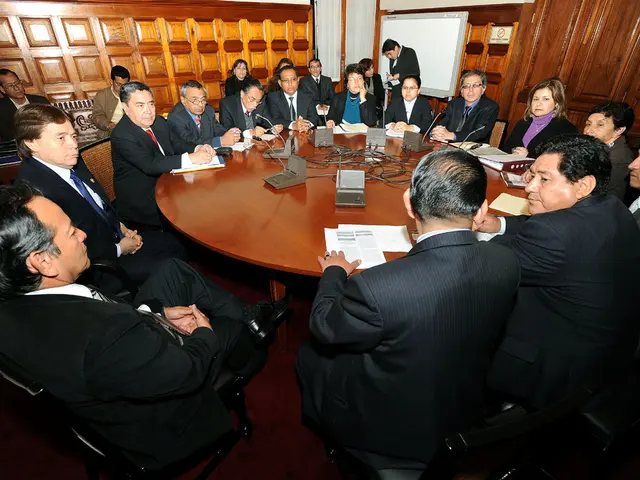Trump Government Indicates Far-Reaching H-1B Visa Reforms, Secretary of Commerce Decries Current System as a "Fraudulent Scheme"
The United States is set to witness significant changes in its immigration policies, with the administration unveiling a 'Gold Card' program and reforms to the H-1B visa system.
The Gold Card program, spearheaded by Howard Lutnick, the U.S. Secretary of Commerce, offers permanent residency to foreign investors contributing $5 million to the US economy. This departure from traditional employment-based immigration pathways represents a shift towards policies that directly inject capital into the American economy.
Secretary Lutnick, who was instrumental in implementing and defending the Gold Card initiative during the Trump administration in 2025, has stated his involvement in transforming both the H-1B visa and green card programs, with a focus on 'picking the best people to come into the country.'
In a move aimed at addressing longstanding criticism, the proposed wage-based system for the H-1B visa program prioritizes candidates earning above-average wages for their positions. This change is expected to prevent companies from hiring foreign workers at below-market rates.
Recent H-1B visa registration data reveals a record 780,884 total registrations for fiscal year 2024, with 188,400 applications selected. However, there has been a decline to 479,953 registrations for fiscal year 2025, indicating market adjustments in response to anticipated policy changes.
Notably, Indian professionals face a significant impact as they comprise over 70% of H-1B visa recipients annually. The administration's dual approach - restricting traditional work visas while expanding investor pathways - signals a preference for immigration policies that benefit the economy.
The Gold Card initiative essentially creates a premium tier of immigration reserved for ultra-wealthy applicants, and is viewed as complementing rather than replacing the reformed H-1B visa system. The Trump administration had previously announced its intention to prioritize higher-earning applicants and fundamentally change skilled worker immigration policy.
The Gold Card program provides immediate permanent residency for qualifying investors, aiming to attract wealthy individuals rather than traditional skilled workers. This initiative is expected to contribute significantly to the US economy while offering a new immigration pathway for high-net-worth individuals.
As these changes unfold, it's clear that the U.S. immigration landscape is undergoing a transformation, with a focus on policies that foster economic growth and attract investment.
Read also:
- United States tariffs pose a threat to India, necessitating the recruitment of adept negotiators or strategists, similar to those who had influenced Trump's decisions.
- Weekly happenings in the German Federal Parliament (Bundestag)
- Southwest region's most popular posts, accompanied by an inquiry:
- Discussion between Putin and Trump in Alaska could potentially overshadow Ukraine's concerns







